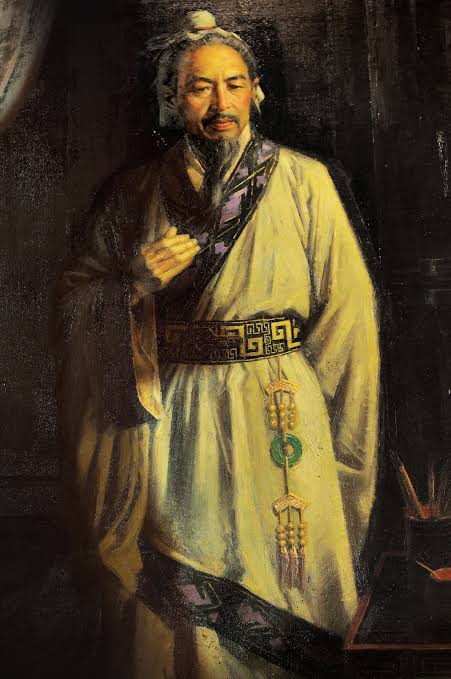
Lao Tzu was first introduced to me by my mentor, Professor Oka Martins Obono of the department of Sociology at the University of Ibadan. That was several years ago when I was about to graduate from the said university.
That particular moment with Prof. in his bookish house was his personal way of sending me off to the world.
After a lengthy conversation with Prof. about my bourgeoning book which I’d shared with him, he went to his inner room and returned in a jiffy with a couple of books in his right hand. One was Lao Tzu and the other was Emotional Intelligence by Daniel Goleman. Then he said to me, I want you to read these books with the fullness of your heart.
Register for Tekedia Mini-MBA edition 19 (Feb 9 – May 2, 2026).
Register for Tekedia AI in Business Masterclass.
Join Tekedia Capital Syndicate and co-invest in great global startups.
Register for Tekedia AI Lab.
“You seem to write like this guy” he said to me, pointing at the word Lao Tzu engraved in a scanty, handy book he held in his left hand. “Your idea is similar to his Tao” he remarked. Then I got curious.
Shortly after that encounter, I briefly read Tao te Ching and I never went back to Lao Tzu again until three years after when an avalanche of conflicts forced me to go to the bookshop and fetch the Art of war by Sun Tzu, an excellent dissection of life from both symmetric and asymmetric lens as well as dialectic and systematic point of views.
Life indeed is warfare. Sun Tzu’s Art of War is a legacy of the ancient wisdom that gives meaning to life and its diverse phases of conflicts or warfares as the case may be. Read by millions of knowledge seekers and translated from its original Chinese text to thousands of languages across the world, the masterpiece by Sun Tzu has inspired several modern thinkers.
The Art of war generally talks about the importance of seeking knowledge and the advantage that emanates from a careful and systematic appraisal of one-self and one’s circumstances in relation to the individual’s conflict(s). Sun Tzu proposed knowledge of the self and of the environment including life’s pattern of events as fundamental skills one requires to adapt in life. He contextualized this in the military life.
The general who leads the army must be able to understand himself and the condition of his army from the perspective of the whole which is the interconnection of all the elements, forces or details that make up the war situation.
The five rules of success
First is the Tao. This is universal or collective knowledge attained by virtue of putting all things related to one’s situation in perspective. This helps the individual to attain a broad and wholesome view of the situation. According to the writer, Tao, is the collective goal that brings the people in sync with their leader. It is also what brings the individual in consonance with the universal plan or the natural order of things.
The second and the third rules are intertwined. They include the ability to recognize external forces that could impact one’s condition, the patterns of these forces and how they can be used to one’s advantage. The material and the non-material existence, external to the self, can be used to one’s advantage and against the enemy. Thus, the external facts can be seen as either a means or an obstacle.
The fourth is about the leader himself who must characterize knowledge, trustworthiness, courage, and strictness. Apart from having knowledge of the self and his circumstances, the general or leader must be able to demonstrate this awareness in his day-today life through discipline. This brings about trustworthiness in him. Then he must have the courage to always act his words and be strict in upholding the laws and consequences of his action.
The fifth is having mastery over the method or approach being used to influence one’s survival in one’s environment or situation. A keen observation of and familiarity with the pattern of life as well as one’s disposition enables the general to know the right methods or approach to take in dealing with similar situation or event. This is what enables one to develop expertise in a particular field.
The general or leader must be able to take cognizance of all the aforementioned in order to emerge victorious during crisis.
Key questions to ask to attain enlightenment and victory include the following:
What is the situation? What is the broad view? What is the individual role within the broad view? Are we at advantage or disadvantage? How can we utilize the situation to our advantage?
After critical examination of one’s situation, one must act in accordance with it, and develop them into a powerful force that invariably influences positive results when deployed. This is reaching Shi, which is like rolling a rock downward from thousands of meters of height away.




Awesome
This is awesome. A must read for everyone.
This is fantastic. Everyone should read this. google
Very beautiful piece ???